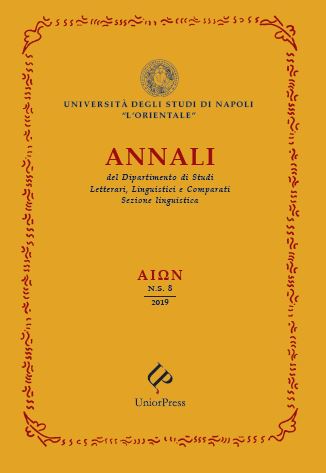COCK, COCK-TAILED, COCKTAIL, AND HAYCOCK
AN ETYMOLOGICAL CONUNDRUM
Abstract
Starting from the generally accepted etymology of cocktail as deriving from the cockerel’s tail, evident in the Italian fascist period translation as ‘coda di gallo’, one attempts to show a different origin. One begins from the ‘cock’ verb present in the cocktailing of workhorses, the well-known custom of cutting their tails into a clump, given that long tails are an obstacle to their usual work. Workhorses are not thoroughbred, thus the meaning reference is to mixture. In the hypothesis elaborated the ‘cock’ verb is associated with the noun ‘cock’, a clump, heap or mass, the base of ‘cock of hay’, ‘haycock’, which would appear to have a multiple origin.





